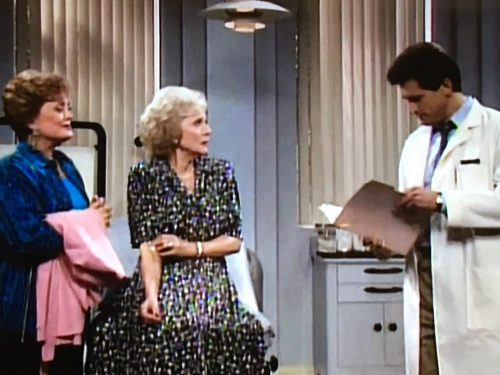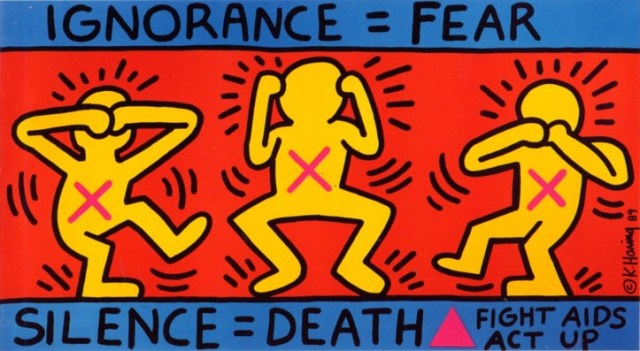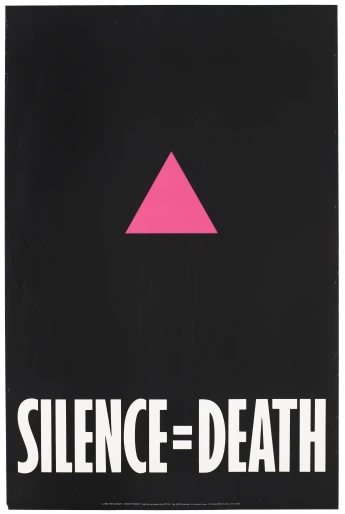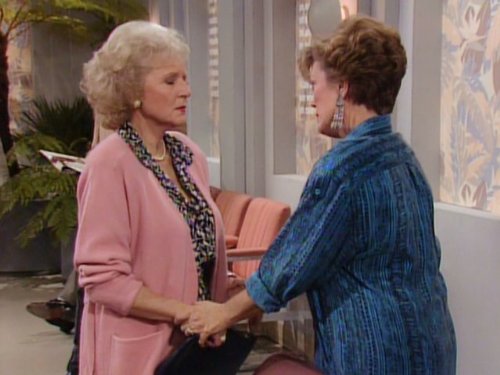This post is a part of Fashion In the Broad Sense: a series of posts that explores how The Golden Girls relates to important topics and issues surrounding women and fashion.
My full post, Deconstructing HIV and AIDS on The Golden Girls, is published on the Nursing Clio website.
Nursing Clio is an open access, peer-reviewed, collaborative blog project that ties historical scholarship to present-day issues related to gender and medicine. Bodies, reproductive rights, and health care are often at the center of social, cultural, and political debates. We believe the issues that dominate today’s headlines and affect our daily lives reach far back into the past — that the personal is historical.
This post is not fashion related but, as I’ve been exploring writing about different aspects of the show for other websites, the “72 Hours” episode is one that I felt deserved deeper analysis. In this episode, Rose receives a letter from the hospital where she had gallbladder surgery notifying her that she needs to take an HIV test because she had received a possibly contaminated blood transfusion. It is one of the most memorable episodes of the series and part of its reputation for tackling and bringing attention to progressive topics.
If you’re interested, in this post I elaborate on my writing process and further thoughts about the history of HIV and AIDS.

I became aware of Nursing Clio earlier this year and have been reading their excellent and well-curated content on a variety of topics since then. Since medicine and health history aren’t topics I typically write about, I was thrilled when they were interested in my pitch about this episode. The “Sick and Tired” episodes have also been discussed on Nursing Clio. I really enjoyed working with all of the editors as they provided insightful feedback that helped me shape my post.
There was so much more that I could have written in the post, but Nursing Clio’s word count requirement challenged me to stay focused on events surrounding the time that the episode aired on February 17, 1990. For instance, I didn’t have space to discuss things like the development of drugs to treat and eventually prevent HIV that now includes PrEP and nPEP. I needed to leave enough space to discuss the narrative structure and impact of the episode as well, which is why I chose to use quotes from the episode as subtitles. I also worry that I didn’t focus enough on how the LGBTQ community was and continues to be impacted by HIV and AIDS, but I really wanted to show why this episode is so powerful and continues to have such an impact. It manages to have an almost universal quality to it because it showed how HIV and AIDS impacts everyone.

I still feel like I could write a much longer essay about this episode, but a post from last year on Nursing Clio, “Silence and Noise: What AIDS Activism and Social Memory Can Teach Us,” highlights more events from the history of the fight against AIDS better than I ever could. The truth is that I learned a lot myself by writing both the essay and this post, and I just hope that I’ve treated with enough sensitivity. I tried to balance my research with what I personally remember from the time of the episode. I talked a little bit about Ryan White in the post because he is someone that I distinctly remember from when I was in elementary school, but Keith Haring was also one of the first artists whose art I loved as a kid. He died of AIDS-related complications on February 16, 1990, the day before “72 Hours” premiered and a fact made all the more poignant to me now. I also later learned that actor, Tom Villard, who guest-starred twice on The Golden Girls, died of AIDS-related pneumonia in 1994. He was one of the few actors in the 90’s who was out and open about his status.
Today, projects like the AIDS Memorial project on Instagram work to share the personal stories of friends and loved ones who died of AIDS on social media so that they are remembered by a new generation. Like the AIDS Memorial Quilt, these projects offer both a moving tribute and an arresting reminder of the impact of AIDS. Other projects such as the Texas Obituary Project also work to preserve the legacies of LGBTQ people who died of AIDS. Many times, especially in the early years of the epidemic, AIDS as a cause of death was left out of obituaries written by victims’ family members, creating further silence and stigma.

It’s been interesting to reflect on this essay since I wrote it, especially in light of the recent death of former President George H. W. Bush just a day before World AIDS Day. I noted the passing of the Ryan White CARE Act, which was signed into law by him in 1990. Bush also enacted the Americans With Disabilities Act that same year. Yet, Bush’s history towards the AIDS epidemic, like Reagan’s before, is deserving of criticism. Both were conspicuously silent while thousands died. Even Dorothy would try to give President Bush a piece of her mind later on in the season.
Please read this interview with Eric Sawyer, an activist with ACT UP since the 1980’s, that discusses Bush’s troubling history with HIV and AIDS and Sawyer’s own experiences and actions with the group. Naomi Gordon-Loebl, who participated in the Ashes to Action protest with Sawyer in 1992, also shares her feelings about the concept of the “respectful mourning period.” Amidst all of the remembrances and reflections, I think it’s also important to listen to the voices of those who had less positive experiences of the Bush administration.

Discussing HIV and AIDS on The Golden Girls is truly just a small part of the overall history and impact of the epidemic. But at a time when younger audiences are discovering the show even as HIV has become a more manageable disease for many people in developed countries, I hope that exploring the “72 Hours” episode will help to bring awareness to HIV and AIDS as we continue to fight for better treatment and a cure.

Go to HIV.gov for resources and to easily search for and find testing locations and other services. If you are located in Houston, Texas, you can get tested at Legacy Community Health and Bee Busy for free or at low-cost.
Special thanks to my friend, Spencer, for sharing many of the articles about President George H. W. Bush and AIDS that are linked within this post.


I was just thinking about this episode today!
LikeLike
Pingback: Undressed for Dinner – Golden Girls Fashion Corner
Pingback: Oh Lord, I Am Not Churning Out Content Like I Used To | The Very Special Blog
Pingback: Dealing with “Mixed Blessings” – The Golden Girls Fashion Corner
Pingback: Pride and Prejudice: Nancy Reagan’s Decorator – The Golden Girls Fashion Corner
Pingback: A Few of My Favorite Things About The Golden Girls Pilot – The Golden Girls Fashion Corner
Pingback: The Golden Girls on The Earth Day Special – The Golden Girls Fashion Corner
Pingback: 6151 Richmond Street: The Fifth Character on The Golden Girls – The Golden Girls Fashion Corner